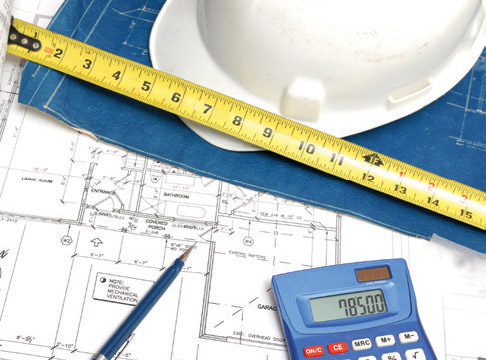"As Long As You Stay The Best, You Will Continue To Get The Work."
There's only one way to stay ahead of the competition and secure work in the rapidly changing electrical industry: continuous improvement. The best way to do this is through ongoing training so you stay on the cutting edge. The systems, the way we execute tasks and our professional conduct is operating at a much higher standard than ever before in our history.
Our members are on large, complex projects today because we earned the right to be there. We stayed ahead of our competition in safety, we stayed ahead of them in productivity, and we stayed ahead of them in respect. We must continue to stay ahead of our competition and that means work safer, be even more productive and deepen our respect.
Education, Training and Professional Development are key to lighting the way for our future. When you as a member of Local 2330 continue to be the best trained to do your job, that puts us in a much better position to secure work for you under collective agreements where the wages, benefits and working conditions are in line with your professionalism.
Training courses offered include:
Safety Training
- Aerial Work Platforms (2 days)
- Confined Space Entry (2 days)
- Fall Protection (2 days)
- Fall Protection Refresher (1 day)
- First Aid (Standard) (2 days)
- Powerline Hazards (1 day)
- WHMIS (Free Online to Members)
- Shop Steward Training (1 day)
- New Member Orientation (1/2 day, in class or online)
- Arc Flash (Z-462) (2 days) in class
Professional Development
Members can take these courses online or in class.

ELECTRIC VEHICLE INFRASTRUCTURE TRAINING PROGRAM™
Course Details:
- EV prospect/customer relations and experience
- Automobile manufacturer’s charging performance integrity specifications
- EV battery types, specifications, and charging characteristics
- Utility interconnect policies and requirements
- Utility grid stress precautions including demand response integration technologies
- Role of electrical storage devices as charging intermediaries
- Installing, commissioning, and maintaining electric storage devices
- Charging station fundamentals including brand/model-specific installation instructions for:
- Level 1: 120 VAC 15 amps
- Level 2: 120-240 VAC 60 amps
- Level 3: 480 VAC 125 amps or 600 VDC 550 amps
- Service-level assessments and upgrade implementatio
- Integration of electric vehicle infrastructure with distributed generation
- Understanding Internet Protocol (IP) networking of charging stations
- National Electrical Code (NEC) standards and requirements
- National Fire Protection Association (NFPA) 70E and OSHA regulations
- National Electrical Installation Standards (NEIS) for electric vehicle equipment
- First responder safety and fire hazard measures
- Next Generation Charging
- EVSE Troubleshooting, Repair and Commissioning
- Facility Based Energy Storage
- (Third Year Apprentices, Fourth Year Apprentices and Journeypersons Only)
THE CONSTRUCTION ELECTRICIAN (NOC 7241) SOLAR PHOTOVOLTAIC (PV) SYSTEMS PERSONNEL CERTIFICATION
Course Details:
The Construction Electrician (NOC 7241) Solar Photovoltaic (PV) Systems Personnel Certification has been developed by CSA Group in conjunction with the National Electrical Trade Council (NETCO) and industry stakeholders to provide assurance that an individual possesses the competencies deemed necessary to perform the job function of a Construction Electrician (NOC 7241) Solar Photovoltaic (PV) Systems Certified Electrician.
(Journeypersons only)
RED SEAL UPGRADER
Course Details:
The Red Seal Endorsement (RSE) Upgrader training, offered through Saskatchewan Polytechnic's online delivery platform, is designed to help apprentices for the RSE exam.
.png)
Electrical Safety Arc Flash & Shock Based on (Z-462)
Course Details:
Arc flash and Shock Safety is designed to educate electricians on proper safety measures and procedures to prevent accident or injury caused by arc flash and electrical shock. Participants will learn about the dangers and causes of arc flash and electrical shock, the types of personal protective equipment (PPE) required, and how to properly use and maintain PPE. This course will cover Canadian regulations and standards related to arc flash and shock safety, as well as best practices for working safely on electrical equipment. Following course completion, participants will have the knowledge to keep themselves and their colleagues safe, while working with electrical equipment.
Outline:
- Arc Flash Statistics
- Introduction
- Standards
- Labels
- OH&S Regulations, Liabilities, and the Criminal Code of Canada
- Qualified and Unqualified Workers
- Electrical Hazards
- Determining safe approach boundaries
- Electricity in The Workplace – Risk and Risk Assessment
- Establishing an Electrically Safe Work Condition
- Personal Protective Equipment (PPE) and ASTM Guidelines
- Temporary and Portable Grounds
- Job Briefing and Work Permits
- Hazardous Energy Control Lockout/Tagout
- Switching Procedures
- Clearance Procedures for Overhead Power Lines
- Live-Line Tools and Testing Requirements
- Working On or Near Exposed Lines
- Substation Safety

Leadership Training
Background:
Saskatchewan Polytechnic's Leadership Training was designed to introduce journeypersons to the skillsets required to obtain a supervisory, leadership or management position. All six courses provide accreditation from the Canadian Construction Association, all of which can be used towards their Gold Seal designation. Upon completion, all participants are eligible for a Blue Seal, in jurisdictions where applicable. All courses are offered online with interactive content, including case studies and engaging discussions.
Program:
This certificate provides a multitude of opportunities, including increased earning potential and possible promotions such as, lead hand, supervisor, shift manager, site manager, and coaching or mentoring other employees. These are opportunities offered in and on all construction sites, mines, mills, hospitality environments, government departments and small businesses.
The following 6 courses are Gold Seal approved through the Canadian Construction Association and are delivered individually, online:
- LEAD-115CE Leadership Principles: What is leadership and what does it take to become a successful leader. (30 hours)
- MGMT-115CE Management Principles: What is management and what does it take to become a successful manager. (30 hours)
- SUPR-115CE Supervisory Skills: The role of a supervisor, managing change, communication, working with groups and other supervisory skills. (30 hours)
- LEAD-116CE Coaching and Teambuilding for Leaders: What is a team, how do you become a functioning team member, and what is a high performing team. (30 hours)
- MGMT-116CE Business Management: Business structure and financial management, ownership types, financing, and liabilities of a business. (30 hours)
- MGMT-189CE Managerial Skills: Team building, leadership, management roles and principles, and essential and employability skills. (30 hours)
First Level Supervisor Training Program
Course Details:
For supervisors, foremen, or any individual who wants to become a First Level Supervisor.
Develop the critical skills and learn the concepts required to supervise a construction crew, maximize productivity and quality, and ensure a job gets done on time, on budget, and safely.
- Build supervisory skills.
- Understand the difference between leadership and management.
- Communicate effectively.
- Lead a work crew.
- Plan and schedule.
- Manage effective meetings.
- Understand the supervisor’s role in safety and due diligence.
- Develop and motivate teams.
- Handle disagreements and problems.
- Address personal problems and performance issues.
Please see attachment to learn more
 First Level Supervisor Training Program
First Level Supervisor Training Program

Introduction to Construction Estimating
Course Details:
For people working in estimating or for any individual who wants to become an estimator.
Gain the knowledge and skills required to visualize the scope and magnitude of a construction project and produce accurate and reliable estimates.
Course work includes reviewing drawings through various phases of a project with the aim of determining the quantity and type of materials required for the project.
- Have a good understanding of estimating practices.
- Know site-specific conditions and regulatory requirements.
- Know how to handle purchasing and logistics, and how to manage materials on site.
- Organize cost data in a clear and logical manner.
- Be able to manage historical information related to costs and know how and when to update this information.
- Know how to assemble bids and meet bid closure deadlines.
- Provide on-site solutions to work-related problems in relation to equipment and material placement.
Please see attachment to learn more
 Introduction to Construction Estimating
Introduction to Construction Estimating
In a meeting with high ranking project officials we asked, "How are the IBEW Local 2330 members performing on your project?" After a short pause one official said , "Your members are very professional, the best people we have ever dealt with." Another official then said, "Your members are very productive & safe workers".
So we asked, "Will we get future projects under collective agreements?". Without pausing this time, the first official said, "as long as you stay the best, you will continue to get the work."
We are the best. Let's stay the best by continuing to train ourselves and build on 1) Safety, 2) Productivity and 3) Respect.
PLEASE EMAIL training@ibew.nf.ca OR CALL 229-4239.
Online free training courses, Whmis, Excel , Etc.
Please go HERE for free training. To log into the online training you will need your membership number and the password which is always "IBEW2".